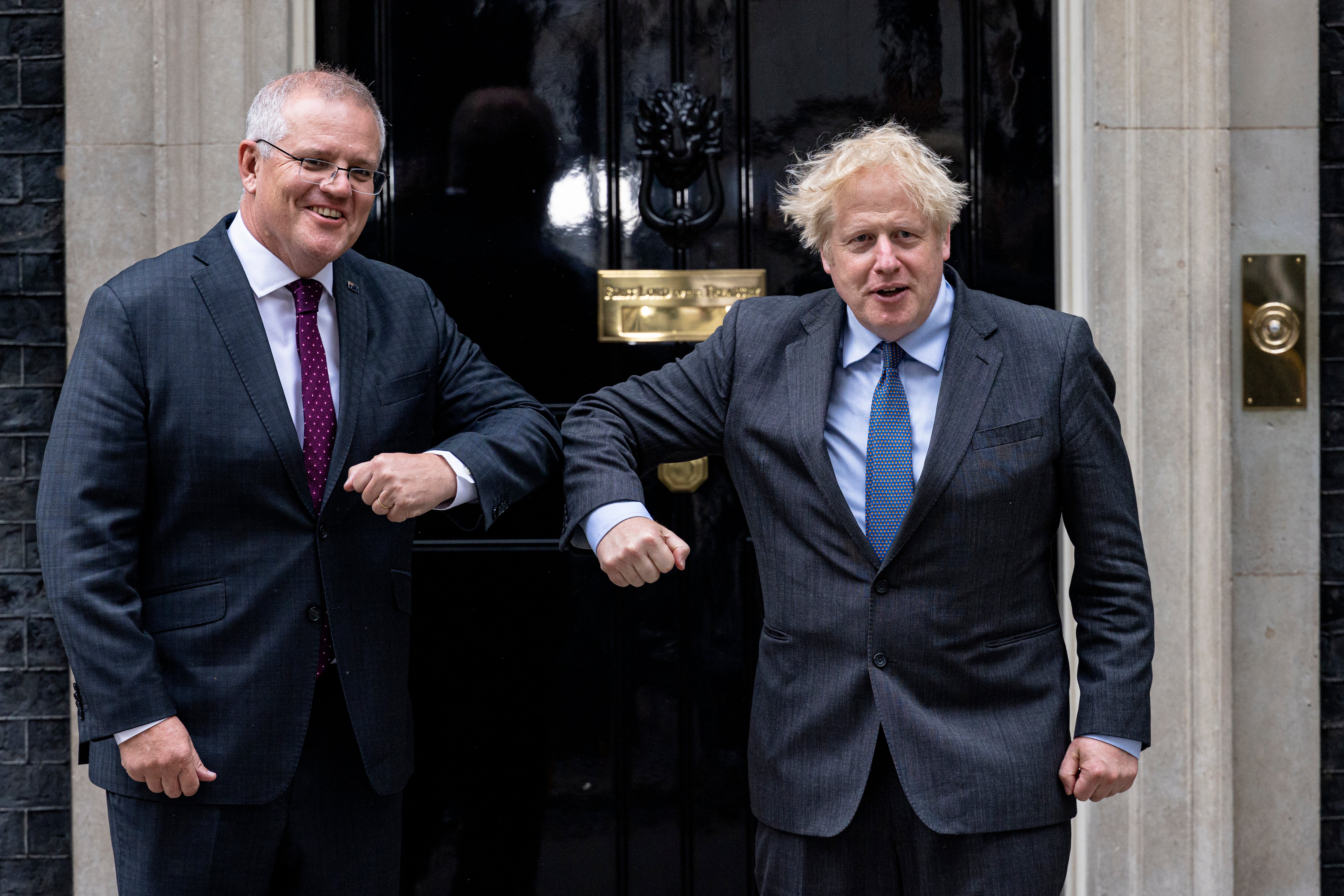Why are UK farmers so worried about a post-Brexit trade deal with Australia?
Boris Johnson hails ‘fantastic opportunities’ for British businesses – but farmers fear the worst

Your support helps us to tell the story
From reproductive rights to climate change to Big Tech, The Independent is on the ground when the story is developing. Whether it's investigating the financials of Elon Musk's pro-Trump PAC or producing our latest documentary, 'The A Word', which shines a light on the American women fighting for reproductive rights, we know how important it is to parse out the facts from the messaging.
At such a critical moment in US history, we need reporters on the ground. Your donation allows us to keep sending journalists to speak to both sides of the story.
The Independent is trusted by Americans across the entire political spectrum. And unlike many other quality news outlets, we choose not to lock Americans out of our reporting and analysis with paywalls. We believe quality journalism should be available to everyone, paid for by those who can afford it.
Your support makes all the difference.Boris Johnson and Australian prime minister Scott Morrison have agreed a free trade agreement – the first deal hammered out by the UK government from scratch since Brexit.
Downing Street has boasted that the deal marks a “new dawn” between the two countries, claiming it will open up “fantastic opportunities” for British businesses and consumers.
But UK farmers are dreading the consequences. They are worried it will see the domestic market is flooded with cheaper, lower-quality meat which will undercut their own produce and put their livelihoods at risk.
What’s in the deal and how much damage could it do?
The deal sees the removal of tariffs and quotas on Australian products – including agricultural products. UK farmers fear they can’t compete with Australian beef and lamb producers, who conduct their business on a much larger scale.
They fear Australian producers could now start a price war and kill off British producers. While this might be good for consumers, it would be bad for the UK farming industry and all the people it employs.
“I cannot the state the damage that I feel it would do,” Minette Batters, president of the National Farmers Union (NFU) has previously warned.
Downing Street said there will be a cap on the level of tariff-free imports from Australia for 15 years, while other “safeguards” will be brought in to protect British farmers.
No 10 also Britons under the age of 35 will be able to travel and work in Australia more freely – suggesting the farm work requirement on working holiday visas could be scrapped.

What about environmental standards?
Farming bodies and charities are worried the deal with Australia means animal welfare standards will be “watered down by the back door” – allowing in produce from places where animals are treated in ways that would be illegal in the UK.
Robin Traquair, a director at the NFU Scotland, said it still wasn’t clear what the promised “safeguards” on welfare standards are supposed to be.
“I want to know the safeguards,” he said following Tuesday’s announcement. “I want to know if we have product coming into our country that is below our welfare standards.”
The farmers also worry that opening markets to Australia could set a precedent in future trade negotiations with other countries – including the US.
This would be even tricker for UK farmers. US welfare standards and environmental regulations are notoriously less stringent and farmers say the competition would be unfair.
What has the government said about the impact on farmers?
Cabinet Office minister Michael Gove has claimed British farmers’ fears of being swamped by cheap Australian exports were unfounded. Australian beef imports would be a “pretty small” portion of UK consumption, he said.
“It’s also the case that opening up trade barriers, bringing them down and opening up the opportunities, provides our farmers with the chance to show on the world stage the amazing quality of UK produce,” he told Sky News on Tuesday.
He cited Australian beef and lamb exports, which under previous deals were limited by import quotas and currently account for only 4.3 per cent of British consumption.
But Australia’s trade minister Dan Tehan made very clear his country expected to boost exports to the UK as he hailed the deal on Tuesday.
“British consumers are missing out on choosing high quality, well priced Australian products,” he said. “What’s more, they’re missing out on eating the best lamb chops, the best steak in the world.”
What are the benefits of the deal supposed to be?
The new deal will help distillers by removing tariffs of up to 5 per cent on Scotch whisky, according to a Downing Street statement – which attempted to play up the positives for businesses in all parts of the UK.
Car manufacturers in the Midlands and North of England will see tariffs of up to 5 per cent cut, No 10 stated.
The government also said more than 450 businesses in Wales exported to Australia last year and that “life science companies and chemicals manufacturers are set to benefit in particular”.
For Northern Ireland, Downing Street said 90 per cent of all exports from Northern Ireland to Australia are machinery and manufacturing goods. Under the new trade deal, tariffs on these goods will be removed and customs procedures simplified.
International trade secretary Liz Truss also claimed the agreement will also boost the UK’s bid to join the wider Comprehensive and Progressive Agreement for Trans-Pacific Partnership (CPTPP) – hailing the region as the “future of engine room of the global economy”.
Join our commenting forum
Join thought-provoking conversations, follow other Independent readers and see their replies
Comments